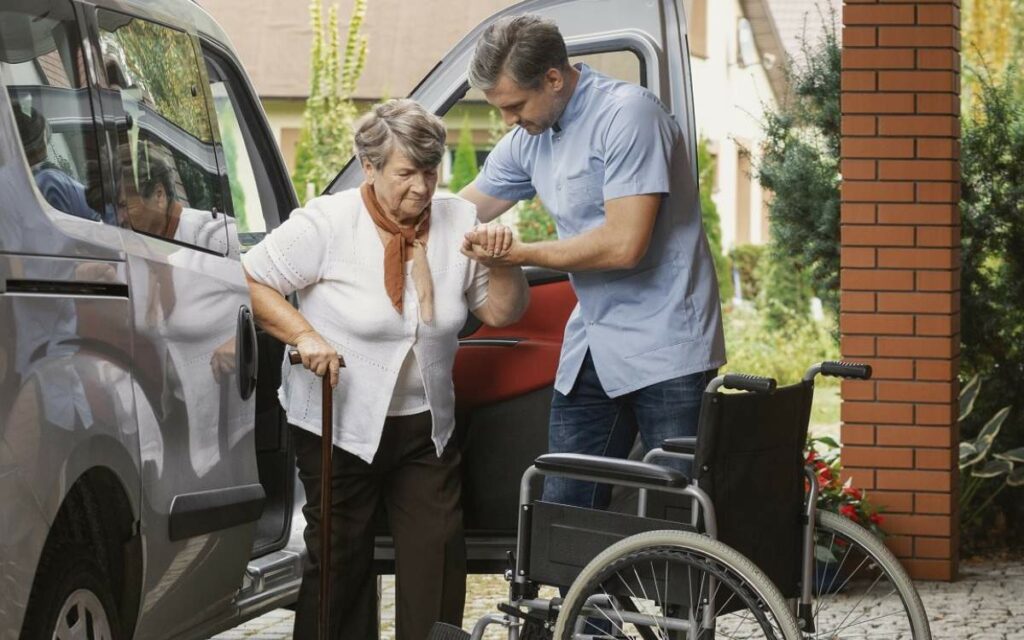
The program will leverage community supports, ensuring individuals receive the appropriate care they need outside of a hospital setting.
It’s been the story of the last few years: hospitals struggling to stay afloat operating at or, more often than not, above capacity.
Emergency departments are overwhelmed, and there simply aren’t enough inpatient beds to go around.
The reasons for this are many and complex. However, one issue feeding into Ontario’s overcapacity problem is the inappropriate use of resources. In other words, people are filling up emergency rooms with non-emergencies, and some are further remaining in hospital, taking up limited bed space, for concerns far better addressed outside of a hospital setting.
Unfortunately, many of these individuals have no one to take care of them – to provide transportation, meals, conduct routine check-ups, and more.
A new initiative spearheaded by Niagara Ontario Health Team (NOHT) is trying to address this problem.
Made possible by $500,000 in funding from Ontario Health West, Let’s Go Home (LEGHO) aims to transition qualifying patients from an emergency department setting to their homes and receive community supports while they recover.
It simultaneously looks to decrease the number of hospital admissions and placements in acute care beds for people 65 years of age or older with a non-acute clinical diagnosis or living with dementia.
The base funding received from Ontario Health West will help approximately 300 people leave the hospital with a stable care plan based on each individual’s needs. Services are time-limited and will be available for up to six consecutive weeks. Patients will be eligible to access LEGHO two times.
“Through the program, emergency department staff will identify patients that meet eligibility criteria and refer them to the LEGHO Navigator, who will then connect people to service agencies,” said Carolyn Askeland, executive director of Community Support Services of Niagara, the program’s lead organization from NOHT.
“We know about 275 people who match our eligibility criteria visit emergency departments in Niagara every year due to an ailment of a non-urgent nature. The reasons could include greater dependence on care providers, reduced mobility, more assistance with personal care, or not being connected to community agencies equipped to support them in their homes.”
According to NOHT, the program is set for launch later this month once staff is hired, hospital employees are trained, and service coordination between partners is finalized.
Services offered through LEGHO will include meal delivery, transportation from the hospital and to follow-up appointments, homemaking, and wellness checks. Program staff will also assist patients in connecting to longer-term supports provided by community agencies, if required.
All services will be free to participants.
“This initiative is critical for the success of our health care system in Niagara and its transformation,” said Askeland. “The program will also demonstrate how our clinicians can work with the community support services sector to ensure our vulnerable citizens receive the right care at the right time and place.”
Some of the organizations partnering in the new initiative include Community Support Services of Niagara, Niagara Health, Home and Community Care Support Services Hamilton Niagara Haldimand Brant, Hotel Dieu Shaver Health and Rehabilitation Centre, Positive Living Niagara, several local Meals on Wheels outlets, and a handful of other care providers.
LEGHO is based on a pilot program from the Brantford Brant Ontario Health Team. According to NOHT, in its first year the Brantford Brant pilot saw an admission diversion rate of 62 per cent and an estimated savings of $7.3 million.
The Niagara Ontario Health Team is a local health integration network of more than 45 health care providers, social service agencies, educational institutions, and patient/client and family/caregiver representatives in Niagara.




















